#do some research into story theory
Text
One more time
A Positive Change Arc -- often called a Hero's Journey -- is one possible shape a story can take. It is not the only or the best character arc, it's just one option. In a Positive Change Arc, the protagonist begins the story believing the Thematic Lie, and must learn and embrace the Thematic Truth over the course of their journey.
TGCF and MDZS are not Positive-Change Arcs. They are Flat Arcs.
(I have not read SVSSS)
A Flat-Arc is a story where the protagonist begins already knowing the Thematic Truth, while the world around them believes the lie. In a Flat Arc, the protagonist will have their knowledge of the Truth challenged and tested, they will be tempted by the Lie, and they will ultimately use their conviction to inspire the world around them to also embrace the Truth.
Flat Arc characters do not need to learn the Thematic Truth. They already know it. They may be seduced by the lie, they may falter, but they will always rally back to the Truth in the end.
(If they ARE successfully converted to the lie, then that isn't a Flat Arc anymore, it's a Corruption Arc, and it's usually a tragedy.)
"But Xie Lian and Wei Wuxian learned--" Nothing they learned impacted the Thematic Truth. Did they learn things? Yes! That's how Being A Person works. Both of them DID change and grow as people from the start of the series to the end. But neither of them learned anything that impacted the Thematic Truth. Because they already knew it.
Xie Lian was already kind, he already wanted to help people, he already believed that common people should be protected and uplifted. His suffering at the hands of BWX did not teach him any deep or important lessons. He already knew the Truth. BWX tried to tempt him to embrace the lie -- that people are undeserving, that you should never do anything for anyone who won't grovel with gratitude, that caring for other people is a waste -- and failed, because Xie Lian knew the truth and even when he was at his lowest he was searching for confirmation that he was right. Xie Lian only needed one single act of kindness to reassure himself that he was right and BWX was wrong. He did not learn anything new, he reaffirmed what he already knew and understood.
Wei Wuxian is good, and righteous, and morally upright. He is a character who does the right thing regardless of the consequences he might face. The sects collectively wanted to destroy him because he refused to bow to them, not because he ever at any point actually did anything wrong. Even the vengefulness he showed while actively at war is narratively justified, and it's key that the sects did not care about the desecration of bodies while it served them. He did not learn any valuable or important lessons when the Sects raided the Burial Mounds. The fact that Lan Sizhui exists at all is proof for us as the audience that everything Wei Wuxian did was worth it. All of it mattered, and all of it was the right choice, because a-Yuan is alive. He doesn't come back to life having learned anything new, he already understood the Truth.
Obviously neither of them are Omnipotent. They learn that there's dudes in love with them, they solve the mysteries of their respective true Big Bads, they uncover some other stuff. But the Thematic Truth, the core theme of the story, is not a lesson either of them needs to learn. It is a lesson they teach others by refusing to bend to the Lie the rest of the world believes.
#MXTX#MDZS#TGCF#Heaven Official's Blessing#Grandmaster Of Demonic Cultivation#Xie Lian#Wei Wuxian#story structure#character arc#please I am begging you. Please.#I know school failed you but please#if you are going to try and get into meta#do some research into story theory#do independent studying into how story craft works#I know school probably taught you that the Hero's Journey#is the best or only story structure#but it is not. It isn't even the most common.#school probably also failed to teach you how Themes works#but you really do need to understand them if youre going to try and write deep meta#you cannot dissect a story if you don't understand the pieces it's made of
70 notes
·
View notes
Text
"Don't spy on a privacy lab" (and other career advice for university provosts)
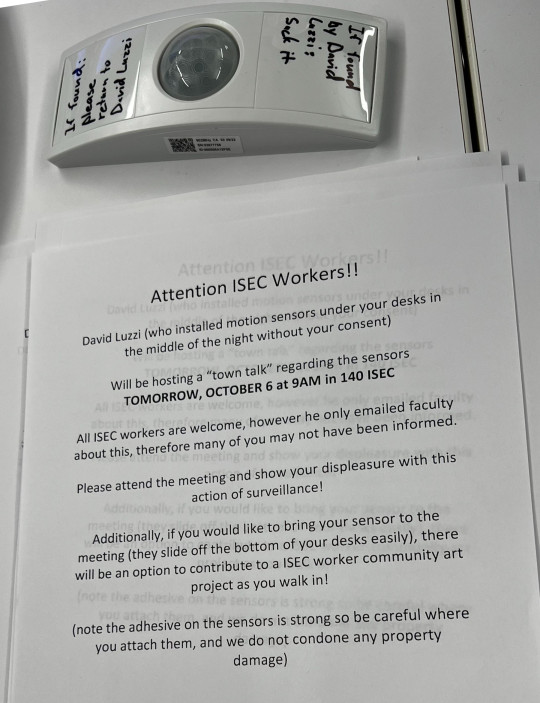
This is a wild and hopeful story: grad students at Northeastern successfully pushed back against invasive digital surveillance in their workplace, through solidarity, fearlessness, and the bright light of publicity. It’s a tale of hand-to-hand, victorious combat with the “shitty technology adoption curve.”
What’s the “shitty tech adoption curve?” It’s the process by which oppressive technologies are normalized and spread. If you want to do something awful with tech — say, spy on people with a camera 24/7 — you need to start with the people who have the least social capital, the people whose objections are easily silenced or overridden.
That’s why all our worst technologies are first imposed on refugees -> prisoners -> kids -> mental patients -> poor people, etc. Then, these technologies climb the privilege gradient: blue collar workers -> white collar workers -> everyone. Following this pathway lets shitty tech peddlers knock the rough edges off their wares, inuring us all to their shock and offense.
https://pluralistic.net/2022/08/21/great-taylors-ghost/#solidarity-or-bust
20 years ago, if you ate dinner under the unblinking eye of a CCTV, it was because you were housed in a supermax prison. Today, it’s because you were unwise enough to pay hundreds or thousands of dollars for “home automation” from Google, Apple, Amazon or another “luxury surveillance” vendor.
Northeastern’s Interdisciplinary Science and Engineering Complex (ISEC) is home to the “Cybersecurity and Privacy Institute,” where grad students study the harms of surveillance and the means by which they may be reversed. If there’s one group of people who are prepared to stand athwart the shitty tech adoption curve, it is the CPI grad students.
Which makes it genuinely baffling that Northeastern’s Senior Vice Provost for Research decided to install under-desk heat sensors throughout ISEC, overnight, without notice or consultation. The provost signed the paperwork that brought the privacy institute into being.
Students throughout ISEC were alarmed by this move, but especially students on the sixth floor, home to the Privacy Institute. When they demanded an explanation, they were told that the university was conducting a study on “desk usage.” This rang hollow: students at the Privacy Institute have assigned desks, and they badge into each room when they enter it.
As Privacy Institute PhD candidate Max von Hippel wrote, “Reader, we have assigned desks, and we use a key-card to get into the room, so, they already know how and when we use our desks.”
https://twitter.com/maxvonhippel/status/1578048837746204672
So why was the university suddenly so interested in gathering fine-grained data on desk usage? I asked von Hippel and he told me: “They are proposing that grad students share desks, taking turns with a scheduling web-app, so administrators can take over some of the space currently used by grad students. Because as you know, research always works best when you have to schedule your thinking time.”
That’s von Hippel’s theory, and I’m going to go with it, because the provost didn’t offer a better one in the flurry of memos and “listening sessions” that took place after the ISEC students arrived at work one morning to discover sensors under their desks.
This is documented in often hilarious detail in von Hippel’s thread on the scandal, in which the university administrators commit a series of unforced errors and the grad students run circles around them, in a comedy of errors straight out of “Animal House.”
https://twitter.com/maxvonhippel/status/1578048652215431168
After the sensors were discovered, the students wrote to the administrators demanding their removal, on the grounds that there was no scientific purpose for them, that they intimidated students, that they were unnecessary, and that the university had failed to follow its own rules and ask the Institutional Review Board (IRB) to review the move as a human-subjects experiment.
The letter was delivered to the provost, who offered “an impromptu listening session” in which he alienated students by saying that if they trusted the university to “give” them a degree, they should trust it to surveil them. The students bristled at this characterization, noting that students deliver research (and grant money) to “make it tick.”
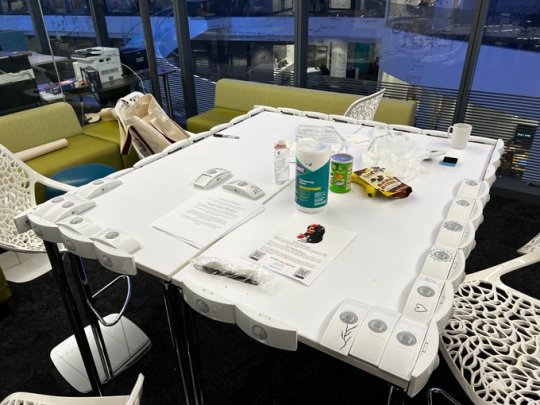
[Image ID: Sensors arrayed around a kitchen table at ISEC]
The students, believing the provost was not taking them seriously, unilaterally removed all the sensors, and stuck them to their kitchen table, annotating and decorating them with Sharpie. This prompted a second, scheduled “listening session” with the provost, but this session, while open to all students, was only announced to their professors (“Beware of the leopard”).
The students got wind of this, printed up fliers and made sure everyone knew about it. The meeting was packed. The provost explained to students that he didn’t need IRB approval for his sensors because they weren’t “monitoring people.” A student countered, what was being monitored, “if not people?” The provost replied that he was monitoring “heat sources.”
https://github.com/maxvonhippel/isec-sensors-scandal/blob/main/Oct_6_2022_Luzzi_town_hall.pdf
Remember, these are grad students. They asked the obvious question: which heat sources are under desks, if not humans (von Hippel: “rats or kangaroos?”). The provost fumbled for a while (“a service animal or something”) before admitting, “I guess, yeah, it’s a human.”
Having yielded the point, the provost pivoted, insisting that there was no privacy interest in the data, because “no individual data goes back to the server.” But these aren’t just grad students — they’re grad students who specialize in digital privacy. Few people on earth are better equipped to understand re-identification and de-aggregation attacks.
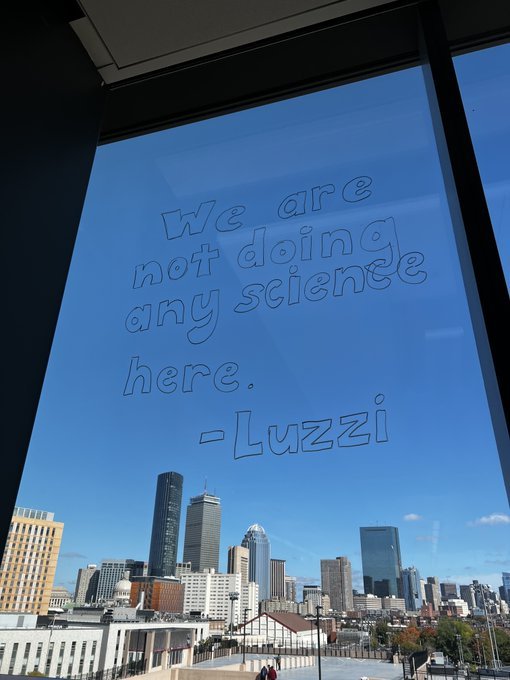
[Image ID: A window with a phrase written in marker, ‘We are not doing science here’ -Luzzi.]
A student told the provost, “This doesn’t matter. You are monitoring us, and collecting data for science.” The provost shot back, “we are not doing science here.” This ill-considered remark turned into an on-campus meme. I’m sure it was just blurted in the heat of the moment, but wow, was that the wrong thing to tell a bunch of angry scientists.
From the transcript, it’s clear that this is where the provost lost the crowd. He accused the students of “feeling emotion” and explaining that the data would be used for “different kinds of research. We want to see how students move around the lab.”
Now, as it happens, ISEC has an IoT lab where they take these kinds of measurements. When they do those experiments, students are required to go through IRB, get informed consent, all the stuff that the provost had bypassed. When this is pointed out, the provost says that they had been given an IRB waiver by the university’s Human Research Protection Program (HRPP).
Now a prof gets in on the action, asking, pointedly: “Is the only reason it doesn’t fall under IRB is that the data will not be published?” A student followed up by asking how the university could justify blowing $50,000 on surveillance gear when that money would have paid for a whole grad student stipend with money left over.
The provost’s answers veer into the surreal here. He points out that if he had to hire someone to monitor the students’ use of their desks, it would cost more than $50k, implying that the bill for the sensors represents a cost-savings. A student replies with the obvious rejoinder — just don’t monitor desk usage, then.
Finally, the provost started to hint at the underlying rationale for the sensors, discussing the cost of the facility to the university and dangling the possibility of improving utilization of “research assets.” A student replies, “If you want to understand how research is done, don’t piss off everyone in this building.”
Now that they have at least a vague explanation for what research question the provost is trying to answer, the students tear into his study design, explaining why he won’t learn what he’s hoping to learn. It’s really quite a good experimental design critique — these are good students! Within a few volleys, they’re pointing out how these sensors could be used to stalk researchers and put them in physical danger.
The provost turns the session over to an outside expert via a buggy Zoom connection that didn’t work. Finally, a student asks whether it’s possible that this meeting could lead to them having a desk without a sensor under it. The provost points out that their desk currently doesn’t have a sensor (remember, the students ripped them out). The student says, “I assume you’ll put one back.”
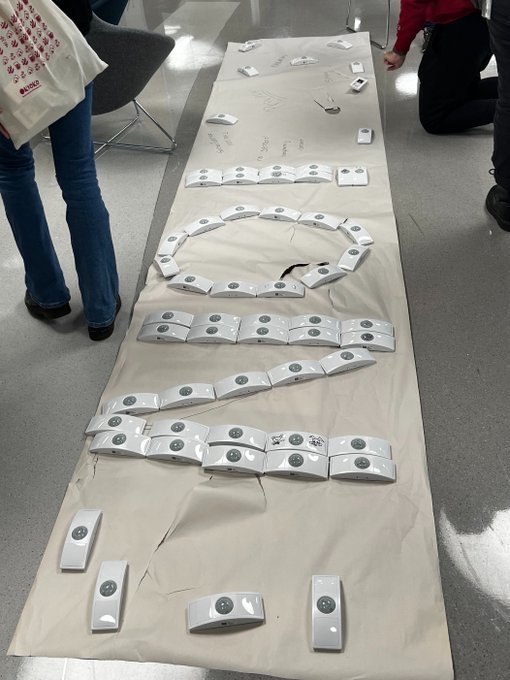
[Image ID: A ‘public art piece’ in the ISEC lobby — a table covered in sensors spelling out ‘NO!,’ surrounded by Sharpie annotations decrying the program.]
They run out of time and the meeting breaks up. Following this, the students arrange the sensors into a “public art piece” in the lobby — a table covered in sensors spelling out “NO!,” surrounded by Sharpie annotations decrying the program.
Meanwhile, students are still furious. It’s not just that the sensors are invasive, nor that they are scientifically incoherent, nor that they cost more than a year’s salary — they also emit lots of RF noise that interferes with the students’ own research. The discussion spills onto Reddit:
https://www.reddit.com/r/NEU/comments/xx7d7p/northeastern_graduate_students_privacy_is_being/
Yesterday, the provost capitulated, circulating a memo saying they would pull “all the desk occupancy sensors from the building,” due to “concerns voiced by a population of graduate students.”
https://twitter.com/maxvonhippel/status/1578101964960776192
The shitty technology adoption curve is relentless, but you can’t skip a step! Jumping straight to grad students (in a privacy lab) without first normalizing them by sticking them on the desks of poor kids in underfunded schools (perhaps after first laying off a computer science teacher to free up the budget!) was a huge tactical error.
A more tactically sound version of this is currently unfolding at CMU Computer Science, where grad students have found their offices bugged with sensors that detect movement and collect sound:
https://twitter.com/davidthewid/status/1387909329710366721
The CMU administration has wisely blamed the presence of these devices on the need to discipline low-waged cleaning staff by checking whether they’re really vacuuming the offices.
https://twitter.com/davidthewid/status/1387426812972646403
While it’s easier to put cleaners under digital surveillance than computer scientists, trying to do both at once is definitely a boss-level challenge. You might run into a scholar like David Gray Widder, who, observing that “this seems like algorithmic management of lowly paid employees to me,” unplugged the sensor in his office.
https://twitter.com/davidthewid/status/1387909329710366721
This is the kind of full-stack Luddism this present moment needs. These researchers aren’t opposed to sensors — they’re challenging the social relations of sensors, who gets sensed and who does the sensing.
https://locusmag.com/2022/01/cory-doctorow-science-fiction-is-a-luddite-literature/
[Image ID: A flier inviting ISEC grad students to attend an unadvertised 'listening session' with the vice-provost. It is surmounted with a sensor that has been removed from beneath a desk and annotated in Sharpie to read: 'If found by David Luzzi suck it.']
41K notes
·
View notes
Text
on worldbuilding, and what people think is going on
there is one facet of fantasy worldbuilding that is, to me, the most interesting and essential but i don't see it come up in worldbuilding guides or writing prompts or anything, and that is the question of:
what do the inhabitants of your world believe about how the world works, and how are they wrong? a lot of fantasy media will set up their cosmology, gods, magic systems, planar systems, concepts of the afterlife, &c., and proceed as though the inhabitants of the world know and understand them.
from someone whose entire academic career is focused on studying human culture in various regions and time periods, with a focus on belief systems (religion, occultism, mythology, folklore): that sort of worldbuilding is unrealistic and missing out on so much fun.
people are always seeking new understanding about how the world works, and they are mostly wrong. how many models of the solar system were proposed before we reached our current one? look at the long, turbulent history of medicine and our various bizarre models for understanding the human body and how to fix it. so many religions and occult/magical traditions arise from people disagreeing with or adapting various models of the world based on new ideas, methods, technologies. many of them are wrong, but all of them are interesting and reflect a lot about the culture, beliefs, values, and fears of the people creating/practising them.
there is so much more to the story of what people believe about the world than just what is true.
to be clear: i think it's fine and important for the author to have a coherent explanation for where magic comes from or who the gods are, so they can maintain consistency in their story. but they should also be asking what people in the world (especially different people, in different regions/nations and different times) think is happening when they do magic, or say a prayer, or practise medicine, or grieve their dead. it is a rich vein for conflict between individuals and nations alike when two models of the world disagree. it is fascinating how different magic systems might develop according to different underlying beliefs.
personally, i think it is the most fun to spawn many diverse models of the world, but give none of them the 'right' answer.
(bonus points if you also have a thriving academic system in the world with its own theory, research, and discourse between factions! as an academic, it is very fun to imagine fictional academic debate over the topics i'm worldbuilding. sometimes i will be working out details for some underlying mechanic of the world and start imagining the papers being written by scholars researching it)
2K notes
·
View notes
Text
What No One Tells you about Writing #3
Opening this up to writing as a whole, because it turns out I have a lot more to say!
Part 1
Part 2
1. You don’t fall in love with your characters immediately
But when you do, it’s a hit of serotonin like no other. I’d been writing a tight cast of characters for my sci-fi series since 2016 and switched over in a bout of writer’s block this year to my new fantasy book. I made it about ⅓ through writing the book going through the motions, unable to visualize what these new characters look like, sound like, or would behave like without a ‘camera’ on them.
Then, all of a sudden, I opened my document to keep on chugging with the first draft, and it clicked. They were no longer faceless elements of my plot, they were my characters and I was excited to see what they could accomplish, rooting for them to succeed. Sometimes, it takes a while, but it does come.
2. Sometimes a smaller edit is better than a massive rewrite
Unless you’re changing the trajectory of your entire plot, or a character’s arc really is unrecoverable, sometimes even a single line of dialogue, a single paragraph of introspection, or a quick exchange between two characters can change everything. If something isn’t working, or your beta readers consistently aren’t jiving with a character you yourself love, try taking a step back, looking at who they are as a person, and boil down what your feedback is telling you and it might demand a simpler fix than you expect.
Tiny details inserted at the right moment can move mountains. Fan theories stand on the backs of these minutiae. One sentence can turn a platonic relationship romantic. One sentence can unravel a fair and just argument. One sentence can fill or open a massive plot hole.
3. Outline? What outline?
Not every book demands weeks upon weeks of prep and worldbuilding. I would argue that jumping right in with only a vague direction in mind gives you a massive advantage: You can’t infodump research you haven’t done. Exposition is forced to come as the plot demands it, because you haven’t designed it yet.
Not every story is simple and straightforward, but even penning the first draft with your vague plan, *then* going back and adding in deeper worldbuilding elements, more thematic details, richer character development, can get you over the writer’s block hurdle and make it far less intimidating to just shut up and write the book.
4. It’s okay to let your characters take the wheel
I’ve seen writing advice that chastises authors who let their characters run wild, off the plan the story has for them. Yeah, doing this can harm your pacing and muddy a strong and consistent arc, but refusing to leave the box of your outline greatly limits your creativity. I do this particularly when writing romantic relationships (and end up like Captain Crunch going Oops! All Gays!).
Did I plan for these two to get together? No, it just happened organically as I wrote them talking, getting closer, getting to know each other better in the circumstances they find themselves in. Was this character meant to be gay? Well, he wasn’t meant to be straight, but you know what, he’d work really well with this other boy over here. None of that would have happened if I was bound and determined to follow my original plan, because my original plan didn’t account for how the story that I want to tell evolves. You aren’t clairvoyant—it’s okay if it didn’t end up where you thought it would.
5. Fight. Scenes. Suck.
Which is crazy because I love fantasy and sci-fi, the actiony-est genres. Some authors love battle scenes and fistfights. It comes naturally to them and I will forever be jealous. I hate fight scenes. I hate blocking and choreographing them. I hate how it doesn’t read like I’m watching a movie. I hate how it could take me hours to write a scene I can read in 5 minutes. I hate that there’s no way around it except to just not write them, or put in the elbow grease and practice.
Whatever your writing kryptonite is, don’t be too hard on yourself. It won’t ever replicate the movie in your head, but our audience isn’t privy to that movie and will be none the wiser of how this didn’t fit your expectations, because it’s probably awesome on its own. It could be a fight scene, sex scene, epic battle, cavalry charge, courtroom argument, car chase—whatever. Be patient, and kind to yourself and it will all come together.
6. Write the scenes you want to write first
And then be prepared to never use them. It can be mighty difficult working backwards from a climax and figuring out how to write the story around it, but if you’re sitting at your laptop staring at your cursor and watching it blink, stuck on a tedious moment that’s necessary but frustrating, go write something exciting. Even if that amazing scene ends up no longer working in the book your story becomes, you still get practice by writing it. Particularly if you hate beginnings or the pressure of a perfect first page is too high, you’re allowed to write any other moment in the book first.
And with that, be prepared to kill your darlings. Not your characters, I mean that one badass line of dialogue living rent free in your head. That epic monologue. That whump scenario for your favorite character. Sometimes it just doesn’t work out anymore, but even if it ends up in the trash, you can always salvage something from it, even if that’s only the knowledge of what not to do in the future.
7. “This is clearly an author insert.” … Yes. It is. Point?
No one likes Mary Sues, because a character who doesn’t struggle or learn to get everything they want in life is uncompelling. The most flagrant author inserts I see aren’t Mary Sues, they’re nerdy, awkward, boring white guys whose world changes to fit their perspective, instead of the other way around—they don’t have anything to say. I’m not the intended audience to relate to these characters and I accept that, but I don’t empathize with the so-called “strong female character” who also doesn’t have flaws or an arc either.
A good author insert? When the author gives their characters pieces of themselves. When the “author insert” struggles and learns and grows and it’s a therapeutic experience just writing these characters thrown into such horrible situations. They feel human when they’re given pieces of a human’s soul. They have real human flaws and idiosyncrasies. I don’t care if the author wrote themselves as the protagonist. I care that this protagonist is entertaining. So if you want to make yourself the hero of your book, go for it! But make sure you look in the mirror and write in your flaws, as much as your strengths.
#writing advice#writing resources#writing tips#writing tools#writing a book#writing#writeblr#fantasy#scifi
537 notes
·
View notes
Note
Hobie x deadpool reader or spider reader
Hobie Brown x Deadpool male reader
Headcanons
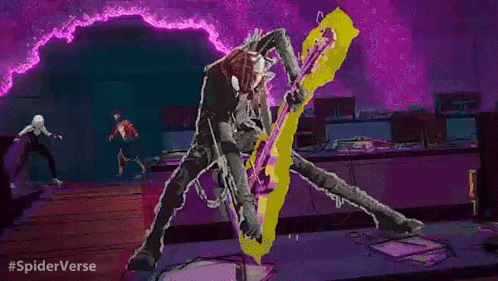
I love Deadpool, who doesn’t love Deadpool? I tried to think of what Deadpool would be like in Hobies’ earth, and I just feel like he would kinda just be the same as always, except maybe with a metal aesthetic. And any chance to work my favorite music into stuff? I’m taking it.
You were Deadpool, and had been Deadpool for a long time. In the beginning it had just been your musician and artist name. Much of your music was different types of metal, with lyrics focused on judging the system and pointing fingers at its corruption.
Of course, a lot of people hated your music, but there was also those who loved it. One of them being Hobie Brown. Even before he became spiderman, hed always been a very righteous person with strong opinions about corruption and capitalism, so finding an artist who shared his views was great.
That was until you got a little too popular and stepped on the wrong people’s toes with your music and art. When you started pointing fingers at Osborn and his wild corruption, those against you grew more and more violent.
And at one of your biggest concerts to date, one that offered all the proceeds to those in need, you were assassinated right on stage. Theories would go around saying it was Osborn wanting to get rid of you, and telling everyone what would happen if they crossed him.
Panic consumed the arena after you were shot right on stage, and in the panic your body was whisked away. Deadpool became an icon in the anarchist circle, as one of the first to stand up against suppression and never back down no matter what.
Time would pass, Hobie would become Spiderman, and he would fight people like Osborn, even killing the guy with his guitar in the end.
But even after killing Osborn, the world was still in disarray, meaning a lot of work had to be done. So, when someone who went by Deadpool started popping up in stories and rumors, it caught people’s attention.
It was assumed you were just a fan, who wanted to use the legendary name of Deadpool to spread your message, or maybe the honor the original Deadpool. That was until people met you though.
You had the same clothes, only now wearing a mask. Your boots, your jacket, your spikes, and patches, even your guitar, you had it all. And on closer inspection, true fans could see it was the real thing.
You were almost like a ghost of the past, stories would go around that you were the angered spirit of the musician Deadpool, having crawled out of hell to wreak havoc on the upper class and tear out the roots of capitalism.
Hobie would want to meet you of course, you were like his hero and biggest inspiration. The first time you two would meet would be during a fight of some sort, and you’d chuck your guitar across the battlefield to nail a corrupt cop in the head before they could get a lucky shot at Hobie.
After that you two became close like two peas in a pod. Hobie would never treat you like you were someone above him, even though he had admired you for years, because he doesn’t believe in treating celebrities like gods.
Soon Deadpool and Spiderman being spotted together was a common sight, and so was seeing spiderman swing around with Deadpool in his arms or hanging on his back like a koala.
You never really take off your mask in the beginning, but when you do Hobie learns why you keep it on. You have a large scar taking up part of your head where the bullet had blown your head apart all that time ago.
You had apparently always been a mutant with a light healing factor, which had kept you alive, but you had been whisked away from Osborn researchers who wanted to use your healing factor. But in the end, they’d simply boosted your powers and you became pretty much unkillable.
This leads to you taking most of the hits during battle, since you can easily take it, anything you lose will just grow back. That doesn’t stop Hobie from worrying though, because seeing someone get their arm sliced off is pretty extreme.
Your first kiss is something you’d only have with a version of Deadpool. Hobie would be carrying your head after it’s been sliced off, and you would be asking him for a kiss and blowing him kisses from where hes carrying your head.
Now, anyone normal wouldn’t do what Hobie does, but Hobie doesn’t like to fit the mold. So, he would lift your severed but still living head and kiss you on the lips. Cue a make out until your body stumbles over and you can get your head back on.
You two never actually put a label to what you are, because that’s not the type of person you two are. But you two are pretty much dating now. You move into an apartment together, and sleep in the same bed at night, and kiss whenever you want.
Spiderman and Deadpool pretty much become icons in your community, for standing up towards oppression, and also being two hot guys who hold concerts after fights.
#male reader#marvel#spiderverse#across the spiderverse#hobie brown#spiderpunk#hobie brown x reader#hobie brown x male reader#hobie brown headcanon#hobie brown imagine#spiderverse imagine#spiderverse headcanon#spiderverse x male reader#spiderverse x reader#across the spiderverse imagine#across the spiderverse headcanon#across the spiderverse x male reader#across the spiderverse x reader#spiderpunk imagine#spiderpunk headcanon#spiderpunk x male reader#spiderpunk x reader#marvel imagine#marvel headcanon#marvel x male reader#marvel x rader#deadpool reader
2K notes
·
View notes
Text
I’ve messed around with AI a little, because I like to understand a thing when I’m formulating opinions on it and I’ve found the best way to do that is to climb into the thing and start pushing buttons. I’ve been unimpressed with ChatGPT; its fiction chops are oddly saccharine, and of course you can’t trust the nonfiction it spits out because everything it says needs to be fact checked. It claims it can’t “lie”, only misinterpret data from the sets it was trained on; devs call the misinterpreted data “hallucination”.
Part of what I was testing was whether it could competently do my job, so that if my boss starts asking about it, I can give him a decent report. I asked it for biographies of a few wealthy people I’ve researched in the past, and it spat out some respectably generic information that was mostly correct. However, most of the people I research now are not like “so rich I’m famous for it” levels of wealthy, and harder generally for me to find information on, as I assumed it would be for ChatGPT.
So I thought I’d see what it could do with someone more middle class, and asked it for a biography of Sam Starbuck.
What it returned was like what you would get if you told me “Write a flattering biography of yourself and don’t worry that I’ll be fact-checking anything you say.” It was mostly true, but it hyped up my achievements as an author in ways that I would consider not entirely honest, and said I was also a professional editor and that I had led prestigious writing workshops in the past. That’s plain untrue, but I can see where it would be making that assumption, because my author bio sounds like a lot of other, more famous peoples’ author bios, and I would guess it just pulled in some of their verbiage for color.
But the wildest part of the bio was that it named three of the novels I’ve written. Or rather, it named two novels I’ve written and one novel that I definitely have not. It said I was the author of a novel called “Like Clockwork”. Just in case I had written a fanfic titled “Like Clockwork” and forgotten about it, I checked AO3 and also asked ChatGPT for a plot summary of Sam Starbuck’s “Like Clockwork”. And sure enough it hallucinated a multi-paragraph summary of an entire novel I’ve never written, on AO3 or anywhere else. (It was not a good summary. Very Generic YA SF Thriller.)
ChatGPT is very good at one thing: apologizing. When I pressed it about where it found the data it couldn’t say, when I asked why it had made up the plot summary it couldn’t tell me, when I asked if it could show me source links or data it drew on to create “Like Clockwork” it of course would not. But it always said it was sorry...
Anyway, my best theory from googling is that every year there are roughly nine million news stories about how Starbucks Coffee’s holiday cups are back “like clockwork”.
I suppose I should be glad the novel’s title isn’t Unicorn Frappucino.
2K notes
·
View notes
Text
Get ready with me to be surprised with
✨️Anya's Origin✨️
Hint: Romania
I had some free time, so I reread the latest chapter of Spy x Family, chapter 92.
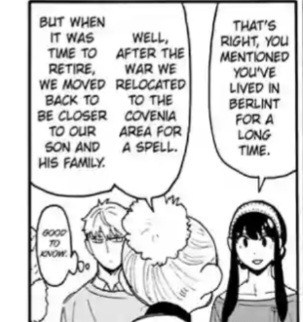
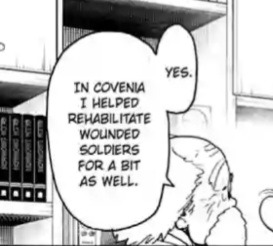
Barbara said she and Sigmund were in Covenia for awhile. We know Westalis and Ostania are a reference for the West Germany and Eastern Germany, so I wondered if Covenia is based on a real place too. I was bored, y'see.
I quick-searched a country name that ended with -nia, but no luck.
I remembered a theory that Anya is more superior in Classical languange because she might've come from a place that uses that languange. A wild idea popped up to me that Covenia still uses (or references) that language. Since Sigmund has many classical books, it's not a stretch to assume he learned that language because he used to live in Covenia. Based on that assumption, I searched what country is still using Latin languange, what languange that references Latin.
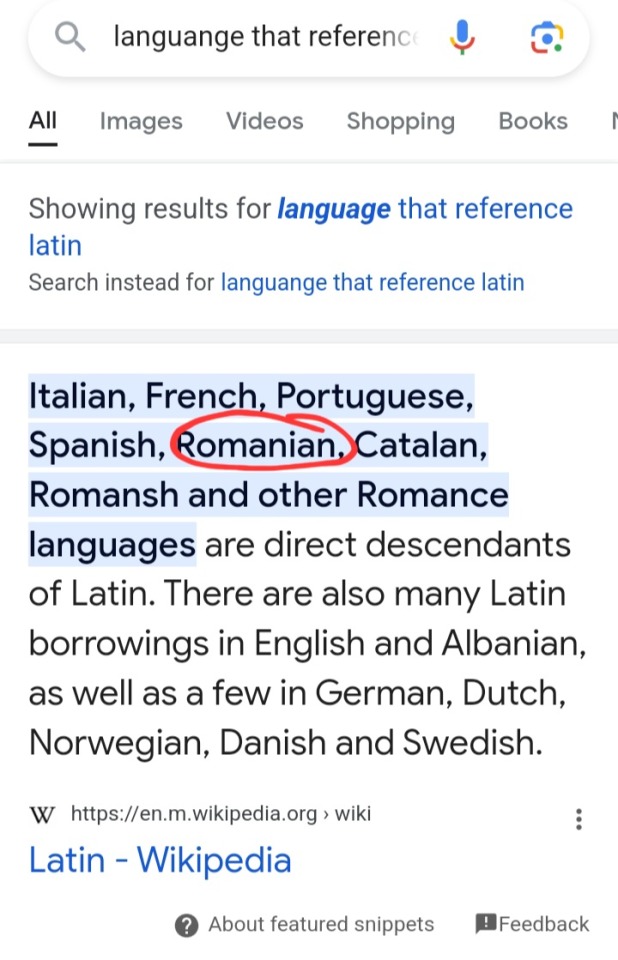
... bingo.
Covenia and Romania. Who would've thought.
I searched where is Romania located because my geography sucks.
Oh it's in Europe, great! And it's close with Ukraine too, Russia...
Wait. I thought the story is based in the '60s, so, could they be related at that time?
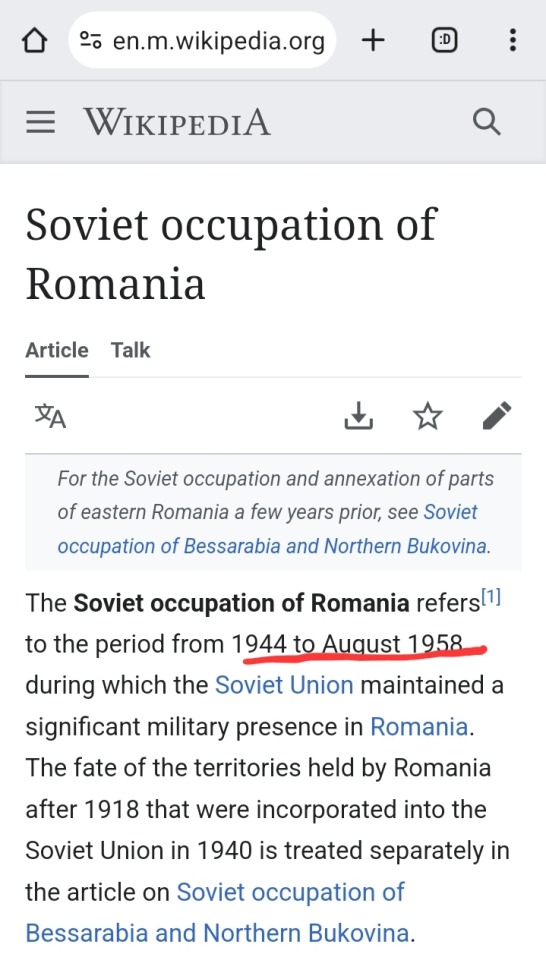
Wow, so they ARE related.
And the timeline matched with SxF's world too.
When I clicked the "Romania" word, I stumbled on this.
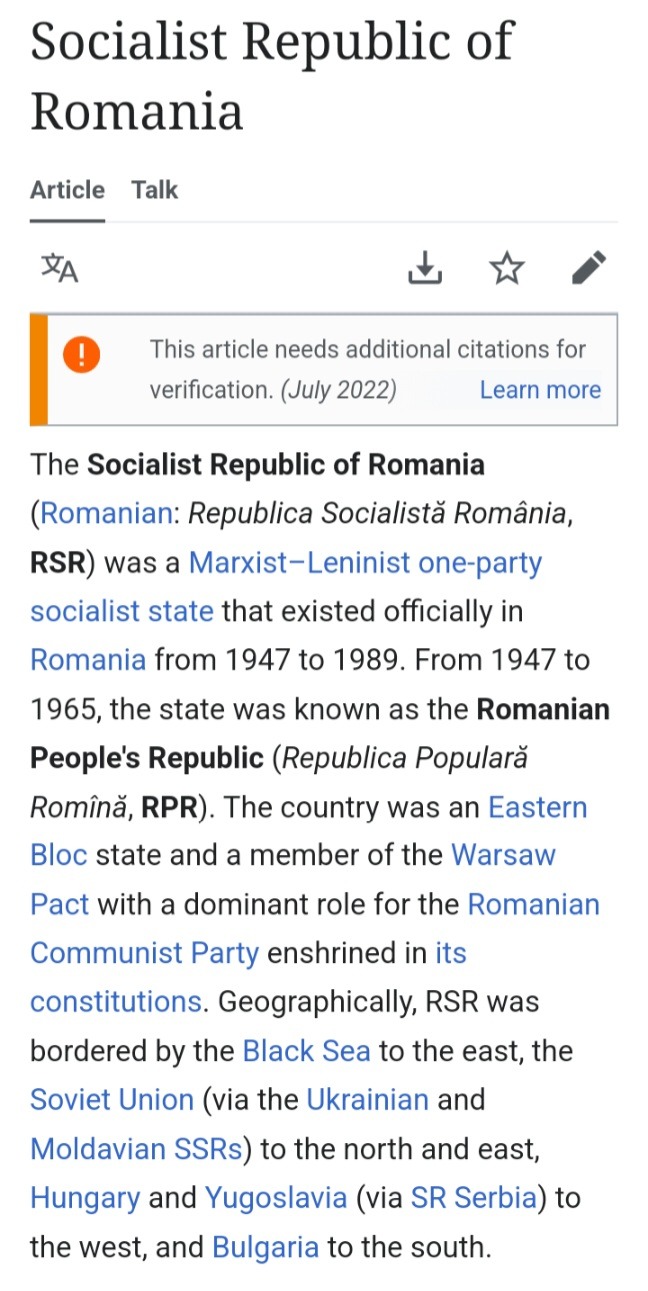
.....
Could it be,
Anya originally comes from Covenia, which is a reference to Romanian People's Republic?
Does it mean the organization that experiment on Anya is based in Soviet?
And to think that Sigmund, a well-known neurology professor, used to rehabilitate wounded soldiers in Covenia... Is it really a rehabilitation though?
*cold sweat*
Anyways.
If Anya really comes from Covenia/Romania, the initial spelling of her name would make sense then, but I have zero idea about Romanian alphabet to confirm it.
Of course I searched it.
The Romanian alphabet is a variant of the Latin alphabet used for writing the Romanian language. It is a modification of the classical Latin alphabet and consists of 31 letters, five of which (Ă, Â, Î, Ș, and Ț) have been modified from their Latin originals for the phonetic requirements of the language
Oh shoot it's getting warmer.
Double check to make sure, I tried to look if [î] is really the replacement alphabet for [y].
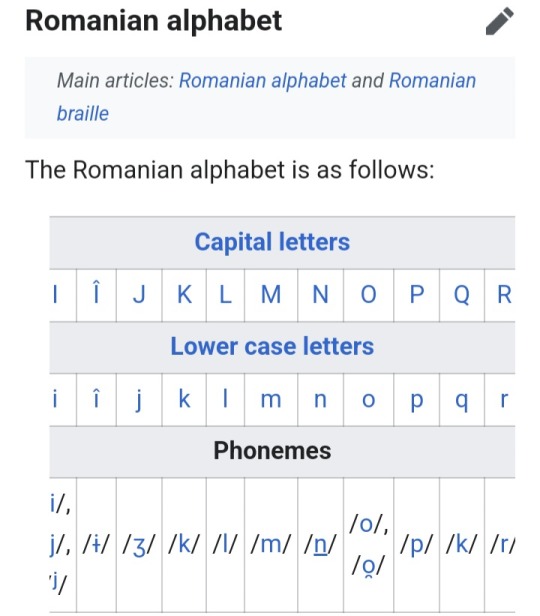
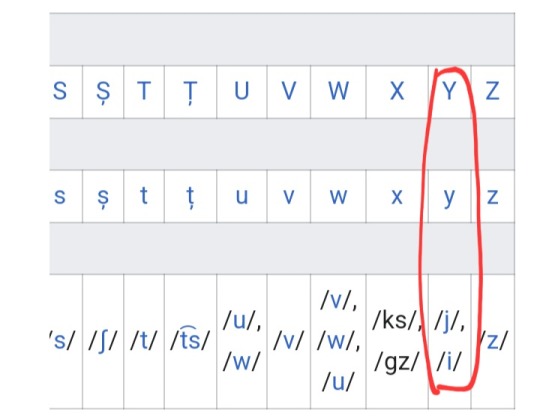
OH SHIT.
K, Q, W and Y, not part of the native alphabet, were officially introduced in the Romanian alphabet in 1982.
Now it makes sense. No wonder Anya spelled her name like that.
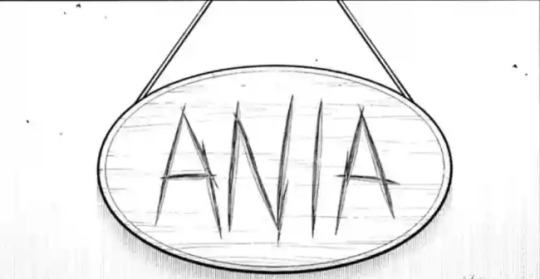
It's because in the place where she came from, the alphabet Y wasn't used yet. And it's not supposed to be Ania either; it's Anîa. But I doubt a small child like her would understand the difference between i and î.
Summary:
Anya might've come from Covenia/Romania. It explains her initial name and her excellence in Classical language.
The organization that experimented on Anya might've come from the Soviet.
Sigmund might have some connections with Anya more than we thought; the theories were right on track. Because he studies neurology and lived in Covenia for some time, he is fluid in Classical languange and he knows how to make learning more fun.
I wanted to try searching what kind of brain-related research did Soviet do at that time, but then I might come up with lobotomy or some dark shit and I'm not prepared for that, so I'm gonna let the sleeping dogs lie until we get more informations from Endo.
Annd that's it. I'm very surprised with this finding. My quick 5-minutes search turned into 2-hours brainrot. And my hands are still cold. I'm not sure if it's intentional from Endo or it's just some happy coincidence, but at least I'm more aware with Covenia now.
Thank you for following me in this short journey! Byee 👋
#spy x family#spy x family spoilers#spy x family manga#spy x family theory#spy x family 92#sxf#sxf spoilers#sxf manga#sxf theory#sxf 92#anya forger#anya forger theory#anya comes from romania theory
523 notes
·
View notes
Text
Analysis behind the backstory and personal story arcs of A.B.A. and Paracelsus (part 1)
Sorry for the people who waited. Technical and real life delays and all that. On the positive, I happened to run into new resources in the past two days that have helped lining up the facts easier.
Anyway, I originally wanted to compress all the lore into a single post, but I find it’s so much more massive once you really dig into the analysis between the story across multiple mediums, the in-game animations and interactions etc. To make this more readable for you all and to make creating these posts faster, I’m going to separate them up into parts that focus on different facets of their relationship and lore as I progress through them.
This first part goes into their origins, and I hope this big post helps to thoroughly explain who/what A.B.A. and Paracelsus are, their backstories prior to STRIVE, and my own analysis sprinkled on top. I want to try to keep the info/lore dump minimal and focused, so if I mention a character without elaborating, I’ll leave a link but if I’m not elaborating more, it’s because they’re not relevant to A.B.A/Paracelsus' stories that much.
Related links:
Analysis of Paracelsus' initial bloodlust and its longlasting effects on A.B.A (Part 2)
This is the "Why ABA and Paracelsus can feel horny" lore/theory post

The beginning with A.B.A.
First off, to introduce their individual origins, it’s easiest to start with A.B.A. She’s a homunculus, an artificial lifeform created by a scientist in his mansion, which was located in the mountains of a region called Frasco or Flask. But before she was ‘born’, her creator had been taken away by the military for his skills in creating artificial life, and so A.B.A. woke up alone.

Despite this, within the 10 years she spent alone in the mansion she was able to learn to read, write, and even create some alchemical magic (seen in some of her attacks in games before -STRIVE-). It’s assumed either she was created with a set of memories and skills, or she naturally learns very quickly. It’s probably due to reading leftover journals and research materials that she even learnt her creator’s name was Paracelsus.
Technically, A.B.A. could’ve left the manor quite easily, there was even a village not far from them. However, she understood that she knew nothing about the world outside and was scared to leave the safety of the manor by venturing outside to explore the unknown world. But she did yearn for freedom and to leave Frasco, so she took to fixating on keys, which she found fascinating in being able to unlock doors to different places.
In the last bit of her 10 years in Frasco, A.B.A would accidentally cross paths with the hidden the demon axe Flament Nagel (which she would later rename to ‘Paracelsus’ in honour of her creator, or just cos that’s the only other name she actually knew).
What’s a demon axe doing here anyway?
So what is Paracelsus? He is what’s known as a magical foci, which are objects or even people that get a soul or a collection of memories/emotions/desires attached to them, which eventually leads to them gaining sentience and often supernatural abilities. They draw from the Backyard, which is basically where the information that makes up all reality is stored in the Guilty Gear world, and also the source of magic. This is the origin of ‘demons’ within the GG world, like Paracelsus.

The story of how Paracelsus/Flament Nagel ended up in Frasco actually involves the ancient Nightwalker (technically not a vampire but he's basically a vampire without the bad stuff) known as Slayer.
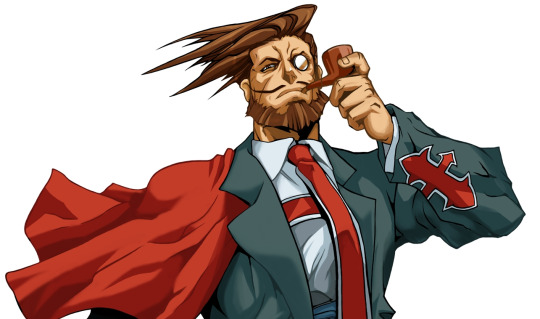
Now Slayer is this incredibly old, incredibly strong vampire Nightwalker, who nonetheless is a very nice guy who doesn’t need to feed on regular people because his wife, Sharon, is a deathless woman that he can feed on indefinitely without worrying about her dying.
Because of his immense age (AFAIK he’s the oldest of the main GG cast) and overwhelming power (he always holds back in-game), he has very insightful observations of Paracelsus and A.B.A.
The following screenshots are excerpts taken from the English transcript (available here) translated from the Night of Knives Vol.2 audio drama CD (you can listen to it here), and are from the perspective of Slayer recounting his encounters with Paracelsus and A.B.A.
Sometime near the end of the 100 year long war between Gears and humans known as the Crusades, Slayer was roaming a battlefield and came across a mountain of corpses of both Gears and humans. In the middle of it was a wandering blood covered warrior that was swinging an axe wildly. After confronting the man, Slayer realized that it was the axe that was the true master, the man had already lost his mind and was under its full control.
That axe called itself Flament Nagel aka the Flaming Nail, or the Sanguine Gale. I'll still be referring to him as Paracelsus at this point in time though.
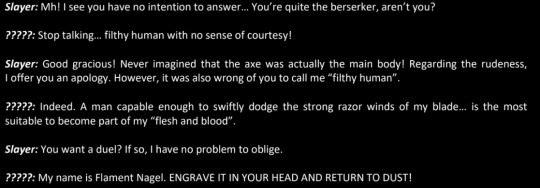
Now magical foci start off simple-minded, only repeating small word fragments, and evolve over time to become more intelligent and sapient. At this point, young Paracelsus was a demon axe who had just gained sentience on that battlefield. Hot-headed and hungry for blood, and wanting to prove his combat superiority, he challenged Slayer and got curb stomped. Slayer was disappointed in how primitive Paracelsus still was in mind and soul, so he left him there to rust.

However eventually, Paracelsus was picked up from that battlefield and was sent to the alchemist Paracelsus, creator of A.B.A. We don’t know if the alchemist knew what the demon axe was, or whether he even requested him specifically for research. But the alchemist ultimately didn’t let Paracelsus out, not letting him take control over him and hiding him somewhere in the depths of his mansion.
(Inaccurate information removed, updating with A.B.A.'s JP GG World entry from XRD)
It would be after A.B.A.’s 10 year long isolation that she decided for reasons unknown, to leave the mansion and explore the outside world. By pure chance, she comes across Paracelsus, who because kinda resembled a key, she immediately picked up and she fell in love with him and decided they were married from then on.
Becoming her key
It's always been known that Paracelsus has some form of empathic abilities, and that he could tell that A.B.A. was fixated on keys and assumed the shape of a giant key to entice her to wield him. This was also the first ‘manipulation’ that Paracelsus admitted he had done to A.B.A. during their heart-to-heart talk.
It’s been further clarified in this recent interview, that it wasn’t so much Paracelsus deliberately taking the form of a key to attract ABA, but because ABA had been so heavily fixated on keys that she saw Paracelsus as a key straight away. That image she had of him as a key seemed to immediately imprint itself on him the moment she touched him, because of his true nature as “an axe (that) transforms into the owner’s image” of what his wielder wants him to be.
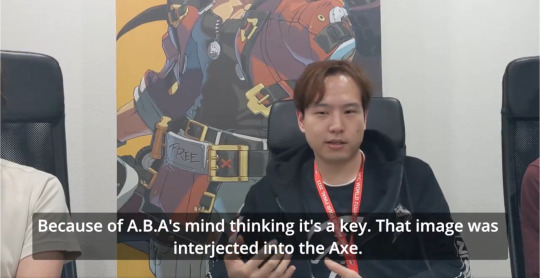
Slayer actually did mention this was likely the case over 20 IRL years ago in the audio drama CD, when he observed Paracelsus behaviour with A.B.A. in their second encounter.

Because A.B.A. never sees Paracelsus as a weapon, Paracelsus began to change to fit her ideal of what she saw him as, to become something more than just a weapon, and allowing Paracelsus to truly change and evolve physically and emotionally.

It’s important to note, Paracelsus isn’t bound to his wielder, and he doesn’t HAVE to allow this to happen either. Despite being dragged around by A.B.A. and acting like he has no autonomy; he actually has all the power to stop her from the start.

As Slayer notes, Para still has the power to completely take over A.B.A. 's mind and force her to do what he wants if he is truly unhappy. However he has never even threatened A.B.A. with this ability, and if not for Slayer knowing his past, no one would know Paracelsus actually can do this.
Whether consciously or subconsciously, Para was becoming more than just a demon axe from the moment he met A.B.A., and in his heart of hearts, he was begrudgingly accepting of his then situation-ship with her.
Fast forward to STRIVE and it's shown that he still continues to evolve to fulfill her 'vision' of what he is. When described as becoming more key-like, it's more obvious when you place both his old and new design side-by-side.
Notably, the blade part of his axe form has gotten smaller by STRIVE, just as he has sworn off violence and bloodshed by STRIVE.
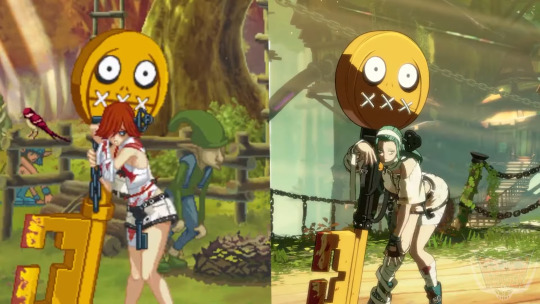
It's even shown in how A.B.A. wields him., especially when Para partially possess or influences A.B.A. in his Muroha mode in the old games (mechanically this is the Jealous Mode in STRIVE). A.B.A. would wield him like a proper 'axe' blade-first in XX/ACCENT CORE. In STRIVE, since A.B.A. is now the dominant one in Jealous Rage mode, she doesn't wield him like an axe and now wields him by...bashing his head into people.
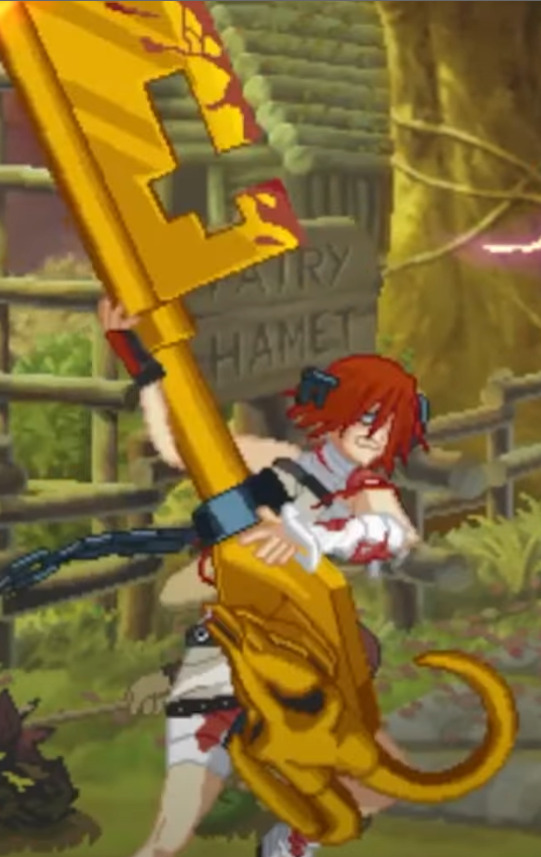

(Also I'll be going over the in-game animations and what they convey in a future post, don't you worry! You can view the comparison compilation here first.)
This even is shown in how A.B.A. uses Paracelsus as an actual key in her Overdrive "Keeper of the Key", which is a new move for her.
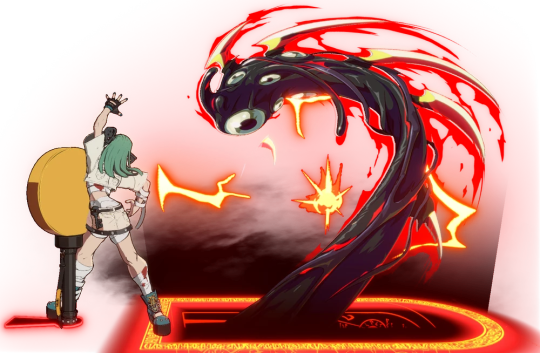
If we go further, I have speculated in this semi-crack theory that due to A.B.A. also interjecting her ideal of Paracelsus being her spouse over the years, that him actually 'reacting' to her advances now could also be an example of his evolution.
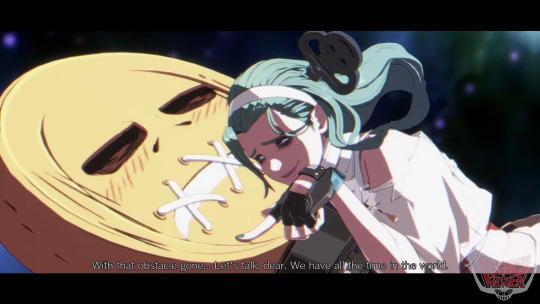
Even if he's trying REAL hard not to.
Hope this was an enjoyable read, let me know if you have any suggestions for improving readability or other stuff. Feel free to ask me questions through the inbox in the mean time that I'm working on the next part.
The next part is going to be analyzing and comparing Paracelsus' XX/ACCENT CORE Muroha mode to STRIVE's Jealous Rage mode, which has quite a bit of detail from comparing their effects on A.B.A. in in-game sprites/animations, plus how it reflects on the change in their power dynamics between games.
Edit: Part 2 available here
#guilty gear strive#a.b.a guilty gear#paracelsus guilty gear#long post is long#my analysis#arc system works#paraba#this is approximately a third or halfish of what I aimed for this week#character analysis#slayer guilty gear#daisuke ishiwatari#aba guilty gear
271 notes
·
View notes
Note
What would you usually advise for an aspiring writer who just... Doesn't have a wide range of English vocabulary? :( I've never written anything yet but for many times in my life, I've been surrounded by literature and fanfiction that I feel at home with the topic. I have stories in mind for my fandoms that I wish that I can write. But the problem is-- English is not my first language. I worry that my dialogues or storylines may not sound appropriate if I ever write and it reaches audience outside my country. I also worry that my world knowledge and or social awareness may be so small that I may not make things... relatable. Do I need to read a lot before being able to start to write? Because I read somewhere that good writers are also wide readers.
I definitely agree that reading more (and reading broading across genres, cultures, and time periods) is a valuable way for a writer to spend their time. By reading, you become familiar with the components of writing and how to put them together. You get a feel for styles that really resonate with you and you also learn what kinds of writing you just don't really like much at all.
That said, I don't think you need to do all of your reading before you start writing. Watching a lot of youtube videos about swimming isn't going to do much for you until you actually get into a pool. Knowing the theory is only half of the battle. Being able to practice is important too.
Remember, you don't have to do it all in 1 story. You can start by writing things that are within your knowledge and when you're comfortable doing that, you can see if you enjoy researching too. If you do, then great! You've got more potential topics to write about. If you don't, that's great too! You get to dig in deeper on the themes and touchstones that you already know.
There's nothing shameful about getting really good at writing the same few things. No one ever asked Agatha Christie to stop writing about murder because she really should branch out.
Having simpler vocabulary is also nothing to be ashamed of - although based on your ask, I think you don't have anything to be worried about. For this, and for the other worries you've expressed, I recommend asking a friend (either in person or in fandom) to read over your work with you. A beta can be there to help with grammar and spelling, but they can also assist in developing ideas or identifying opportunities you have in your story. They can be a cheer reader or a sensitivity reader too.
When it comes to being relatable, just remember we're all human. We all live. We'll all die. We all feel happy and sad and angry and bored and hungry. A lot of us fall in love. A lot of us have caring families. Some of us are heartbroken for almost all of our lives. The city that we do it in or the workplace or the type of school doesn't matter. It's the experience part that's universal.
I'd love to hear from other authors who write in second (or third, etc) languages about your thoughts on this one. And for everyone else, please feel free to share your thoughts as well.
461 notes
·
View notes
Text
Writing disability: The Super-Crip Trope, and how to avoid falling into it's harmful elements
The "Magical disabled person" or as it's often called in disability circles, the "Super-Crip" is the name of a trope in which a disabled character has some kind of magic or special abilities, which is used to mitigate or erase the impact of their disability. While not a mandatory part of the trope, many super-crip characters are also stronger than their peers, specifically because of their disability's impact on their powers.
So why is this trope so unpopular among many disabled people? There's a few reasons. The main one is because more often than not, Super-crips who are written by non-disabled people are often treated as an easy way out of actually having to deal with a character's disability, and a shortcut out of having to do the research into how a disabled character would deal with certain situations. When these writers encounter something they think their disabled character can't do, instead of actually talking to people with the same disability as their character and doing research, they just write that its not a problem because "magic powers go!"
In some cases, but not all, their powers all but erase their disability completely, at least from the perspective of it's relevance to the story. While, to my knowledge, this was never in the comics or movies, A good example of this is a "fan-theory" I've seen among non-disabled X-men fans who claim professor X could use his telepathy to walk, functionally bypassing his spinal injury (Or his leg injury, if we're going off some of the comics' timelines). This would functionally erase his disability, making it an example of both the super-crip trope and the miracle-cure trope.
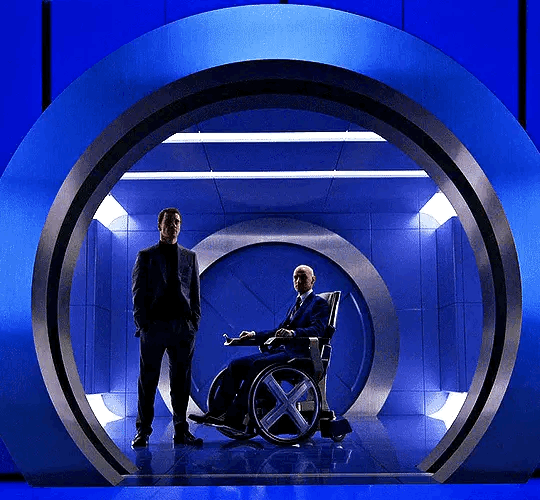
ID: An image of Professor X from X-men, a white bald man wearing a suit, sitting in a silver wheelchair, and another unknown man in a suit standing beside him, framed by a circular doorway, both their faces are partially obscured by shadow. /end ID]
Another reason this trope is disliked is because writer's often have good intentions when using this trope, but they actually end up undermining the points they were trying to make. Often, super-crips are portrayed as badasses in an attempt to show that "you can still be a hero/useful to the plot and be disabled", but the way they portray it usually implies that disabled people, as they exist in real life, aren't useful unless they have something that compensates for their disability or have impossible powers.
So should super-crips be avoided entirely? Some folks in the community think so, but personally, I don't agree. Despite all of what I've said so far, I think there are ways to write characters who technically fit the definition of a super-crip, without it being harmful. There's an argument to be made that "super-crip" specifically refers to harmful version of the trope, so not everyone will consider characters who aren't part of it, but I do, and I think it's important to discuss both the harm this trope can bring, and how this trope can be used in non-harmful ways. Humans (and creatures with human-level intelligence) are adaptable creatures, and in a world where magic exists and especially in worlds where its common, disabled people will find ways to use it to help themselves. but help is the key word there.
So let's talk about some ways you can write super-crips, without it crossing the line into becoming harmful. The following are some things for you to consider about your character's disability, how their magic/powers interacts with it, how they interact with the world (and vice versa) and more:
Are your character's powers an aid or a cure?
The first, and one of the most important things to consider, is if your character's powers function like an aid or piece of assistive tech, or a cure? If you boil it down, is the magic helping them or "fixing" them? This can be a cure in the literal sense, as in giving an amputee the ability to shape-shift to get their limb back, or a functional cure, meaning the power essentially by-passes the disability, like the above mentioned professor-X fan-theory. It's not literally curing him, but it might as well be.
In a world where this magic or super-powers exist, it's perfectly natural that a character might use the magic to lessen the impact of their disability, but it shouldn't erase it entirely. Give the magic a trade off, make it imperfect. You character can cummon a magic prosthetic, but there's a time limit on how long it lasts for, or their magic needs to recharge it. A wheelchair using mage might be able to engrave magic runes on their chair that allow them to pass over rough terrain, but only to a certain extent. It might allow them to go up-stairs, but it can only be used so many times per day (and make sure you show the times where they need to get up the stairs, but have run out of uses!) Things like that.
Is the power directly tied to their disability?
Is the power you're giving the character directly tied to their disability? There's 2 ways you could read this, and both should be considered. 1. The power is something you, as the author, gave to them specifically because it would help mitigate their disability (e.g. giving a character without arms telepathy so they can still pick things up/hold things because you couldn't figure out how they would be a badass swordsman without it) or 2. Does this character, in universe, have their power specifically because of their disability? e.g. Did our arm amputee develop telepathy through sheer-force of will because they really wanted to be a swordsman, and their determination manifested as telepathy/A god gave them the powers because they felt bad for them/a wizard taught them how to do it because they were inspired by the person's perseverance?
If the answer to the first one was yes, perhaps reconsider and do more research. If the answer to the second one is yes, proceed with a lot of caution. Generally, if the powers originate from someone feeling sorry for your character, being inspired by them or anything to do with their determination and perseverance, I'd recommend changing that. However, if the powers came from your character having to adapt something to to their disability, that is really a case-by-case basis thing. Sometimes it works, sometimes it doesn't. your success with it will depend on the character, the setting and the specifics of how.
Is this power common, or is this character the only person in the cast/only person we see with this ability?
Is the power you're giving your disabled character rare, or even unique? It's fine to give your disabled characters powers that are common within the world, but if they're one of the only people who has that ability (or similar abilities), ESPECIALLY if it directly helps mitigate their disability, you might want to reconsider that choice. In a world where everyone can fly, it would be weird if your wheelchair user couldn't without an explanation. But if no one else in the story can fly except your wheelchair user, it starts looking more like you just gave them that power so you don't have to think about accessibility in your world. If you really must give your disabled character the rare/unique power, consider making another character with a similar disability but no/more common powers so you aren't just avoiding the issue, or making the power not related to/impact their disability directly (e.g. giving your leg amputee super-hearing.)
Does this power solve a wider access issue in your world, or does it just make it easier for your character alone?
As a general rule of thumb, if you are writing a story where you don't want accessibility issues to be a thing (e.g. a story set in a utopia), focus on fixing the environment, not the characters. Instead of giving your wheelchair user the ability to fly upstairs, give the buildings ramps and lifts. That way, its a solution for everyone with that disability, no matter their access to things like magic or technology. When talking about super-crips, this is especially important, doubly so if your character's power is rare! I made a (mostly joking) post ages ago about an idea for an earth-bender character in the Avatar universe, who gets fed up with republic city being inaccessible and starts earth-bending all the stairs into ramps. This solves the accessibility issue for them, but also makes their environment more accessible for others without bending to get around. Of course, not every disabled character will want to help/care to help others, but often when non-disabled people write disabled characters with powers, they kind of forget that their character won't be the only disabled person in this world. It often feels like they honestly think fixing things for their character means there's no problem anymore, and that's not the case.
Avoid, "I may have [insert disability here] but I can still do stuff because of my power!"
By this, I mean give your character other ways to address issues relating to their disability than just their powers. One funny example I remember reading in a writing group I was a part of was this author who was bragging about how their paralysed character could still drive a car because they had electrokinisis (the ability to telepathically control electronics). Aside from the fact that wouldn't work on all cars - including the one their character drove, since not all cars have electronic components controlling their acceleration and brakes, the way they described it was extremely complex, and overall not worth the effort when the real-life solution, hand controls, was much, much easier and the setting allowed for easy access to that kind of tech. When I pointed this out to them, they said they had no idea hand controls were a thing, and they had no idea that real disabled people could drive. They thankfully changed it, but there's 2 things to take from this: 1, double check that disabled people can do the things you assume they can't, your magic solution might very well not be needed, and 2. variety is important regardless. No one device, or in this case, magic power, should act as a one-size-fits-all solution. IRL disabled people have lots of tools to help us, I have 2 sets of prosthetics for different tasks, a wheelchair, a grabby claw (for reaching things on high shelves when using my short legs and wheelchair) and hand controls in my car (or at least I used to but we won't get into that lol). My prosthetics won't "fix" all my problems, I need other tools too. keep this in mind when it comes to magic too - it shouldn't be the only thing at your character's disposal.
There's nothing to compensate for.
Remember, don't treat your character's disability as something they need to make up for (especially if they "make up for it" using their powers). Your disabled character is allowed to make mistakes, they're allowed to have flaws both related and unrelated to their disability, they're allowed to not be good at some things, and they don't always have to be the best at whatever their roll in the plot is. In most stories, they should be on par with the other characters, or at least in the same ball-park, but as I mentioned before, a lot of stories don't let disabled characters fail. In order to justify them even being present, they are often made out to be the undeniable best, almost to mary-sue levels of perfection and super-crips especially fall into this issue a lot. They can be good at things, but balance it out, like with any other character.
You don't have to use all of these points, but they are still worth at least considering. For example, Toph fails all of these points except the first three. Despite that, she's still one of my favorite disabled characters in media, even if she's not perfect, and I'm not alone in thinking that. I've seen lots of other disabled people say the same about her.
Which of these points you should use will depend on your story, character, setting and tone. As I've mentioned a few times now, the key is striking a balance. At the end of the day though, these are only general pieces of advice and a lot more factors go into making a character like this work. only disabled people will be able to tell you if you've pulled it off, and that's where beta-readers and disabled sensitivity readers come in!
Also, remember, these kinds of tropes don't just apply to the more common/well-known disabilities like amputations and wheelchair users, that's just what I have experience with! Be sure to research any disabilities your character has to ensure you are not falling into these tropes.
#Writing Disability with Cy Cyborg#long post#writing disability#disability representation#disabled#writing advice#writeblr#authors of tumblr#writing#authors#writer#on writing#writers on tumblr#writblr#writerblr#creative writing#disability#disabilities#actually disabled#super-crip#disability tropes#disability in media#magical disabled person#tropes#writing trope#writing tropes#good tropes#bad tropes#Gif
891 notes
·
View notes
Text
Interesting that pop culture portrays Van Helsing as an experienced, seasoned vampire hunter, when it's pretty clear in the novel that this is his first go around with the whole thing, his first confirmation they actually exist, and in other words he's basically winging it and hasn't necessarily thrown a punch in his entire life (Which means he can’t just throw hands with Dracula, he needs research and backup to organize the perfect trap where they won’t be instantly killed). VH doesn’t always know what’s going on, he’s figuring things as he goes along; Like yeah he's HEARD of vampires, but it's never been anything prominent to him.
If anything, his past with vampires is probably similar to a lot of readers; Familiar with the concept, knows some of the details but not all of them, and definitely presumes them fake. He sees something going on with his patient and is like Haha damn that's just like a vampire, wouldn't it be crazy if... And then he slowly starts settling into conspiracy theory mode when more and more dots show up to conveniently connect, as he does the obligatory Protagonist Searching Stuff Up bit and realizes Mein Gott!!! It might be a vampire!!!
But then at the last second VH reminds himself, Now hold on, have I actually SEEN this vampire??? But it won't do anyone harm if I added some garlic flowers, right...? And then it just gradually escalates from there into full-on paranoia and dread that vampires exist and VH needs to desecrate the dead, and then he finally gets confirmation when he sees an Undead Lucy. What the fuck.
I think there's an argument to be made that Van Helsing was doubting himself just as much as Seward and the others initially did, if not more so, and he can’t even talk to anyone about it; So there’s an elation where you finally talk to others and realize it’s really happening, you’re not crazy.
This just ties into the theme of recording that which you did see, which is indisputable, because it’s evidence and proof. So you can be certain you aren't totally insane, and can distinguish facts from assumptions and theories if necessary; Especially when one needs to consider other explanations for the same symptoms. There’s a relief confirming what is and isn’t real to dispel self-doubt, like there was for Jonathan, who also suffered from Dracula’s gaslighting distorting his perception of reality.
I think all of this makes Van Helsing's actions and secrecy a lot more understandable when handling Lucy; If you hired a doctor and he suddenly started bringing up vampires, you might be inclined to think he's insane, doesn't know what he's talking about, and has read too many vampire stories and probably believes in 'alternative' medicine. Van Helsing still has an image and reputation to uphold here, and if it's gone, he can't actually be there to help Lucy if he turns out to be right.
That isn't to say he isn't without critique, especially in later portions of the novel, but you can kinda see where this underdog stance of "I'm right and the others around me are wrong" gets vindicated and thus develops into a bit of arrogance later down the line; Particularly, in presuming his disagreements with Mina to be no different than his secrecy with Seward and Mrs. Westenra.
In the end, VH could be described as a character who wonders if he's in the novel Dracula (compared to Jonathan who knows he's in a horror story of some kind but can't name the genre), but then has to remind himself this is reality... If this is a story, it’s probably just some medical drama. And when VH does accept he's in the novel Dracula, he assumes his character development and the lessons he learns are straightforward.
717 notes
·
View notes
Text
Weekly Jungkook Fanfic Recs:

Some fine JK fics for your reading pleasure. Please show your appreciation to all the wonderful authors :)
The Forgotten Spaces:
You've been dancing on the same dance crew since your teenage years, and you finally have an important role in it. It feels like life is taunting you when your rival comes back after disappearing for a year, ready to tease you every chance he gets. Will the teasing turn into more, or are you going to take him down with you?
https://www.tumblr.com/oddinary4bts/714163315613614081/the-forgotten-spaces-masterpost-jjk?source=share
When The End Comes:
Seven years after you've started dating Jungkook, long distance creates a wedge in your relationship. When the only solution seems to be breaking up, you go your separate ways even though love still lives in the two of you. Will you find a way back together, or has the end come for you and Jeon Jungkook?
https://www.tumblr.com/oddinary4bts/727637458044469248/when-the-end-comes-masterpost-jjk?source=share&ref=oddinary4bts
The Boy With Galaxies In His Eyes:
You had never thought the night sky could be found in someone’s eyes. That is, until you met Jeon Jungkook and his gravity pulled you in. Will he crush you with the galaxies in his eyes, or will you learn to explore his worlds and make them yours?
https://oddinary4bts.tumblr.com/post/694226660441128960/the-boy-with-galaxies-in-his-eyes-jjk
Sinful Lust:
In an attempt to spice up your bedroom life with your boyfriend Min Yoongi, you suggest bringing another man into the action. Yoongi seems reluctant at first, but when you mention his friend Jeon Jungkook, he can’t deny his attraction. All that’s left to do is to convince Jungkook into participating...
https://www.tumblr.com/oddinary4bts/724853153529495552/sinful-lust-masterpost-myg-jjk?source=share
Oh My God, They Where (Quarantined)Roommates:
What do you do when you're quarantined for months on end with Jeon Jungkook - S-tier cuddler, workout robot and thirst trap extraordinaire? Fuck him, you guess.
https://ot7always.tumblr.com/post/624575056240050176/oh-my-god-they-were-quarantined-roommates
Once Bitten, Twice Shy:
You meet Taehyung college and he convinces you to move to his hometown with him. The town is nice, Taehyung’s friend are great, and you get along with everyone except Jungkook. You can’t seem to figure out what you’ve done to make him not like you, and why did you care so much? Also, why did none of them ever get cold?
https://www.tumblr.com/pbandjk/184635794224/once-bitten-twice-shy
Alpha Jeon:
You’ve been raised to be a Luna since you were born. You’ve always had an idea of how your future would be, there was little room to imagine anything different. You’d meet your mate and fall madly in love, and the two of you would take over for your parents once they got older. But what happens when a certain wolf comes in and throws all of your plans on their head?
https://www.tumblr.com/pbandjk/636812449904017408/alpha-jeon-masterlist
Bite Me, Jeon:
Somehow you convince Jeon Jungkook to look into theories of vampirism for a research paper. What Jungkook doesn’t expect, is for vampirism to become a very real and very personal problem for him.
https://sailoryooons.tumblr.com/post/683613241221464064/bite-me-jeon
Habits Of A Clandestine Nature:
College au.
https://www.wattpad.com/story/365219172-habits-of-a-clandestine-nature-%E2%80%A2-jjk
Silver Chains:
Jungkook is inquisitive, he likes asking questions. He also likes fucking. These are both great qualities - when done separately of course. After the Muster, he asks you numerous questions, but whether they were out of genuine interest or purely to tease, the answer escapes you (as always).
https://satnin-darling.tumblr.com/post/654462205050355712/ silver-chains-m-one-shot-jeon-jungkook
#bts jeon jungkook fanfic#jungkook fic recs#jungkook imagines#jungkook smut#jungkook fanfic#jungkook fic#bts jungkook#jungkook#jungkook x reader#jungkook x oc#jungkook x y/n#jungkook x you#bts fanfic#bts jungkook fanfic#bts fic recs#bts smut#bts imagines
338 notes
·
View notes
Text
some misc worldbuilding questions to get your gears turning:
Do they have germ theory or some equivalent? How do they conceptualize the spread of disease and infection?
Is the everyday economy based more on trade/barter or currency? Is the currency valuable in its own right, or is it just something agreed upon to have value (eg. salt or gold vs. paper money)
What is their main method of lighting? What resources does this use?
Primary mode of transportation? How much does this vary based on things like purpose of travel, social class, etc.?
How much of a knowledge/education gap is there between social classes? Is there a baseline of education that everyone gets/is expected to have?
What are the most popular modes of storytelling? Is everyone telling campfire stories? Are they going to plays? puppet shows? are they going to the cinema? are they reading novels or epic poetry? Are there any folk characters or pop culture things that most people are familiar with?
Where does most people's moral framework primarily come from? Religion? Philosophy? Are there different schools of thought? How much do they vary?
Is there anything considered scandalous/improper/taboo that's normal in your own culture? and vice versa
Do most people live and die where they are born, or is it common to relocate and travel widely? how much does this vary by class/profession/region?
What do they do with criminals? Do they have an extensive prison system? If so, who funds/runs it? If not, how is crime discouraged/managed? Are there specific punishments for specific crimes?
How rigid are their class boundaries? How possible/common is it for someone to change social classes?
Is there anything that people get dangerously addicted to in your world? How accessible is it?
How easy is it for someone to do research/look up information they don't know? What is the primary method of doing this?
What holidays do they have? Any weird traditions? Fun traditions? Are they universally celebrated, or only by specific groups of people?
How do they dispose of their dead? How do they honor their dead?
How much exchange is there between cultures? Do people of different groups intermingle, or do they mostly stick with their own people?
How common is it to speak more than one language, and who is most likely to be multilingual?
How much do regional dialects/accents vary within the same language? Are there any dialects/accents that are stigmatized? Do different accents have different associated stereotypes?
This isn't meant to be taken as a checklist that you have to completely fill out btw. Just things that might help add flavor to your world and characters. (Also mostly things I end up thinking about logistically anyway as they become relevant to the plot or a character's frame of reference.) Enjoy!
498 notes
·
View notes
Text
I wanna talk about the scene in the museum with Azul...
(SPOILERS FOR BOOK 3 AHEAD. ALSO LOTS OF RAMBLING! :D)
During Ch. 38 of Book 3, Azul and Yuu have a short conversation post-overblot in the underwater museum place. I always felt that this bit of dialogue was weirdly charged? The whole scene felt very intimate to me (and the soft music in the background doesn't help lmao), but I never knew WHY since nothing said was inherently romantic.
So, I went back and re-read through every post-overblot and realized that Azul is the only who who has a one-on-one conversation with Yuu after their overblot??
It's rare enough to have one-on-one conversations between Yuu and another character, but then Azul goes a step further. He's the only one to open up to Yuu about his problems:
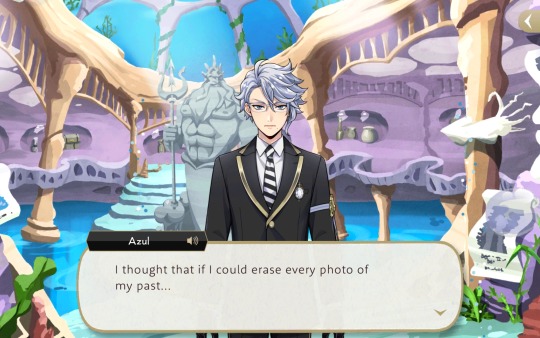
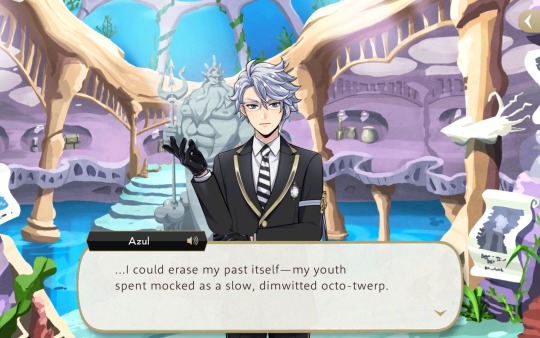
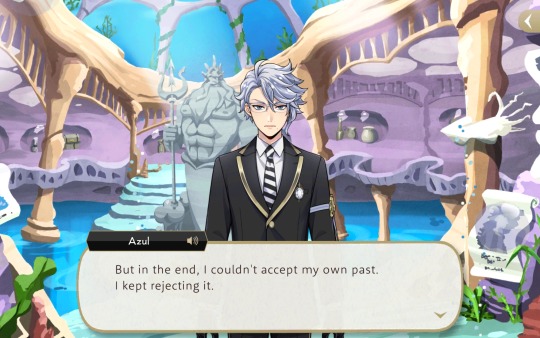
Some of the other overblot boys talk about their problems, but not to Yuu specifically. It's more of a declaration than confiding in someone, you know? (E.g. Riddle talking about how he prefers milk tea even though the rules stipulate lemon tea)
We, the players, are shown flashbacks of the overblot boys to explain how they reached this point but I can't recall if Yuu is privy to this information as well. (It's theoretically possible since Yuu already has visions / dreams of the Great Seven, but no one ever mentions it so who knows. I'm personally on the side of Yuu NOT knowing because it feels a bit invasive that they'd have this knowledge of people who weren't ready to share it.)
Regardless of whether Yuu can or cannot see those flashbacks, Azul is the only one to willingly talk about his motivations to Yuu. For Azul, this is especially important as he's so protective of his image as a clever and upstanding housewarden, and yet here he openly admits to Yuu that he was a bit of a loser as a kid (his words not mine!).
I guess you could argue that he felt there was no reason to hide it anymore since Yuu already saw him as a chubby octopus baby, but he didn't have to talk about it at all if he didn't want to. But he did. On his own. With no prompting.
(Really, though. Yuu can either say they want to make sure he puts the photo back or that they're worried about him, and either way he drops his lore on them lol)
And then Yuu tries to help him feel better??
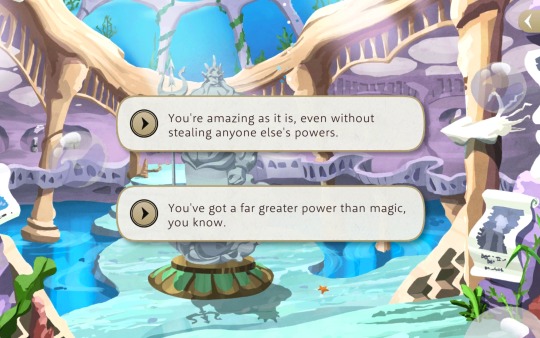
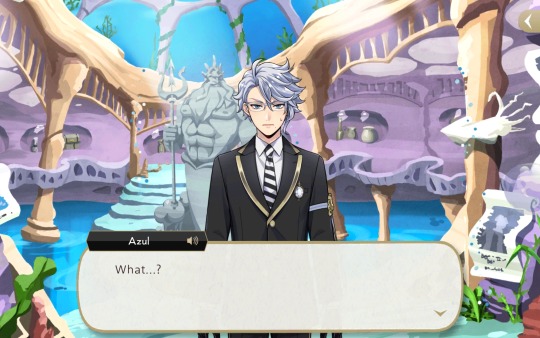
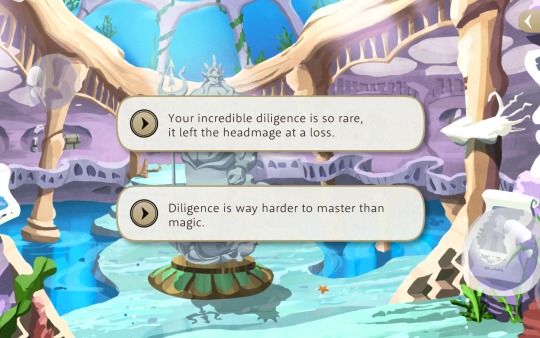
To my knowledge, Yuu doesn't do this with any of the other overblot boys, either. I could have missed it during my research, but if they did it wasn't nearly to the same extent as with Azul.
I still don't know why Azul felt like opening up to Yuu. He didn't have to, but maybe he wanted to? Maybe he wanted to try his hand at being genuine for once and felt Yuu was the least intimidating person to do it with (the magicless human that they are). Who knows? I wish there were more scenes like this. It makes Yuu feel more included in the story. I also think it shows a lot of growth on Azul's end to open up about his problems to Yuu of his own volition.
I'm not sure what I wanted to say with this post, only that I wanted to get my thoughts out there about this scene because it always stood out to me. I felt there was always an undercurrent of something and I think it's because this was the only post-overblot private conversation we got with Yuu and an overblot boy, plus the added encouragement from Yuu at the end.
I'm curious to know if anyone felt the same way about this scene or if I'm just imagining things. I'm also interested in hearing any theories why Azul suddenly felt the urge to open up to Yuu, if you've got them!
Thanks for enduring my rambling!
Bonus!
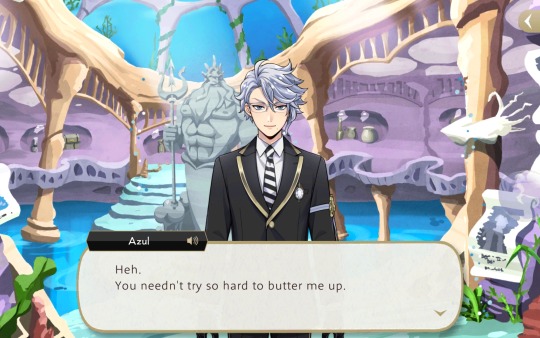
Azul's so funny for trying to play it off all cool like he isn't doing flips and princess twirls in his head rn. Yuu laid it on THICK. We all know he's freaking out internally.
#i do have a theory for why only azul got this one-on-one with yuu post-overblot but that's a whole other long winded post lol#azul x yuu shippers win this one i s2g#this is just a really cute scene okay i wanted to mention it#i LOVE analysis btw#disney twisted wonderland#disney twst#twst#twisted wonderland#octavinelle#azul ashengrotto#twst azul#twst book 3#cheekinrambles
158 notes
·
View notes
Note
I've had a consistent thought in my head of the girls learning more about the upside down.
Like they know a bit: uncle Dustin still lives in Hawkins doing research on something, they've seen their dads and they know about the scars and their disabilities. They know something happened to their entire family and they know there was an earthquake that wasn't really an earthquake. But they've never learned more than that and they'll never know the details as long as Steve and Eddie have a say.
But at some point, each of them realizes that the monster hunter jokes that their dads make aren't really jokes.
In general, I think Steve and Eddie’s sentiment surrounding how they address the not-so-pleasant aspects of their past with their daughters is that they won’t lie (because that’ll only come back to bite them in the ass later), but they’re also only going to tell them as much of the truth as they literally need to.
Not that Moe knows any of this.
All Moe really knows is that her dads went through some scary-ass shit when they were her age and they don’t really talk about it.
Still, Moe has eyes. Maybe she didn’t realize it when she was little, but even just the sheer amount of scar tissue her dads have isn’t exactly normal. When she asks where they got them, though, all they ever say is that a monster tried to eat them.
Moe also knows that the reason Pop doesn’t usually join them on shopping trips at the mall is because they can trigger bad migraines, and she knows the reason he gets migraines in the first place is that he’d taken too many hits to the head in too short a time, but when she asks how he’d gotten a concussion and then a TBI and then two more concussions in the span of four years he always just says something like picked a fight with the wrong Russian spy, or something like that.
And it’s public knowledge that Dad was accused of murder when he was in high school and nearly died before the charges got dropped, but when she asks about what happened, he gives her some spiel about curses and demons and portals to alternate dimensions and monsters (again, with the monsters).
They’re kidding, Moe knows. They’re giving obviously fake answers because…well, for a lot of reasons, she can imagine– not wanting to relive whatever actually happened, not wanting to put their own trauma onto Moe and her sisters.
Honestly, Moe doesn’t really even bother asking about it anymore because they clearly don’t want to talk about it, and if it really was that bad, she can’t even blame them. Besides, she’s pretty sure that dads are supposed to be total mysteries to their kids, so…whatever.
The story of what happened in Hawkins, Indiana starts to gain some public attention again while Moe is in high school – one of those true crime conspiracy theory-type stories people make Reddit threads and YouTube videos about, and apparently (because Moe has no interest, but Robbie likes that kind of stuff) Dad almost always comes up in them, Pop sometimes.
Around that time is when Moe’s dads start to get all kinds of media requests – not that Pop had any idea. He’s basically chronically offline, so no one is really able to track him down other than finding his work email on Psychology Today, but he’s got filters set up to send that shit to spam so he doesn’t even have to see it. Dad, on the other hand, is (supposedly) well-known for his books or whatever, so he doesn’t have the same kind of anonymity. He got all sorts of calls and emails from people wanting his first-hand account, but he always refused to participate, told them to lose his number and never contact him or his family ever again.
That’s the kind of thing that really rattled Pop – Moe didn’t like that. He’s kind of an immovable object in that way, so seeing him rattled just seemed wrong.
They’d even needed to threaten legal action against one online tabloid who just wouldn’t leave them alone – not that Moe is supposed to know about that, but she’d eavesdropped on a phone call between her dads and Uncle Dustin, who seems to exist as a central point in it all even if Moe doesn’t know why (maybe it has something to do with how her dads always complaining about how he still works for that lab, whatever that means).
“Are you ever gonna tell us what really happened?” Moe asks one day, when it’s just her and Pop in the car on their way home from a basketball tournament in Connecticut.
He sighed, not taking his eyes off the road.
“Hon, can I ask you to stop and consider that maybe we have been?”
And for her dad’s sake, she does, she makes herself run through the mental log of all the lore or whatever she’s unlocked over the years.
Monsters, Russian spies, superpowers, demon-animals, curses, portals to alternate realities, government corruption, evil scientists.
Bullshit, she’d always thought, but…her dad had never bullshitted her before. Why would he choose to start with this?
Moe looked back at him, some kind of question on the tip of her tongue even though she had no idea what to ask, and this time, Pop spared a glance back.
“I’m not telling you everything,” he warned her as he looked back at the highway stretching out endlessly ahead of them, and Moe tried to keep any signs of disappointment off her face, “But I’ll tell you some.”
#ooh Moe-POV how do we feel about this#steve isn’t rattled he’s gearing up to defend eddie to the grave again#moe just can’t tell the difference#steddie#liv’s steddie dads verse#steddie dads#steve harrington#eddie munson
190 notes
·
View notes
Text
STYX Experiment: Levan
I was in the middle of writing up a different-yet-related theory, before this came to mind! Many thanks to @hanafubukki, your messages fueled the ideas here 👀🫶💖🐦⬛
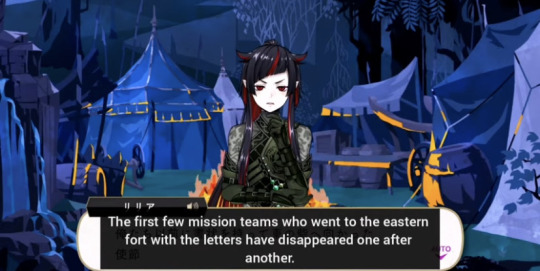
Regarding Levan’s disappearance, I think it’s easy to forget that soldiers repeatedly went missing at the East Fort, aka the fort that Levan was both in charge of and also disappeared as well. While we don’t know the details of where he actually disappeared, I think it’s suspicious that he was headed to the same spot where other Fae soldiers kept disappearing. Lilia was headed over there not only for Levan, but for the other soldiers too.
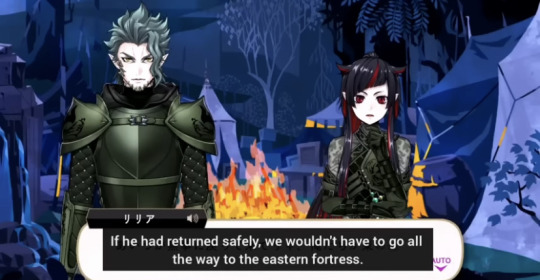
But why did these soldiers disappear? Why at the Eastern Fort? I admit that I can’t come up with concrete answers, but another line that’s been bothering me ever since Book 6 released, is that Fae don’t respond to the River Lethe the same way humans do.

Idia specifies this when planning to erase the memories of everyone on Sage’s Island, which included Fae like Malleus and Lilia. But apparently, they need different “dosages” adjusted for them regarding their memory. It’s quite fascinating how STYX was able to fine-tune this process, and learned how to keep the very specific and long memories of Fae, while also erasing others.

The time period of the Fae-Human war makes this tricky, but teleportation magic is established here. Book 6 also establishes how in the modern day, STYX can show up to any country, whether they asked for it or not. It’s not entirely impossible that STYX potentially could’ve done research near Briar Valley at some point, especially because there were so many human kingdoms around at the time allied against Briar Valley.
It’s also interesting that we never get a confirmation of Levan dying or not- something that Lilia was able to sense with Meleanor’s magic disappearing. He just simply disappeared, without any traces of his magic for Lilia to track down.
Now that I’ve brought up all these seemingly unrelated points, let’s try and put them together! With all this information, was Levan and his fellow soldiers kidnapped by STYX, or by a human kingdom that was allied with STYX at the time? 🤔

With Levan, I think of Diaval from the Maleficent live action movie. Diaval was a raven captured by a HUMAN hunter, and was forcibly transformed into a human to be saved. Maleficent could also change him into different forms like a wolf or a dragon- all species that he wasn’t meant to be. Essentially like an “experiment.” In the TWST story, with Styx making its sudden appearance that deviated greatly from Hercules, could Diaval’s transformations be referenced in TWST through Levan being an experiment?

If Levan was kidnapped by Styx to be an experiment, it makes sense why Lilia couldn’t find him despite traveling the world. The Isle of Woe is practically untraceable unless you have a rare Unique Magic like Rook does! It’s underwater, so of course people who lack inside knowledge wouldn’t know about it, no matter how much they travel the world.
And if Levan was an experiment, he would be the perfect “candidate” for the River Lethe dosages. Levan was a presumably powerful Fae, as it’s rumored he fought against the Knight of Dawn and survived. It is why Styx and Idia were so confident in using the River Lethe even against a powerful Fae like Malleus- they’ve done it before and so many times that they were able to fine-tune to a near perfect degree.
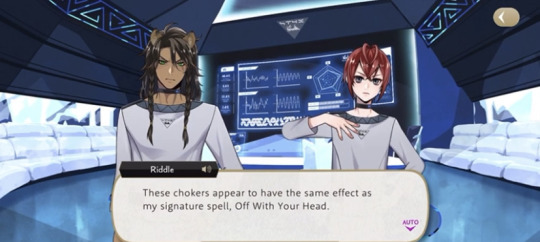
Styx also shows how they developed technology similar to Riddle’s “Off with Your Head,” and can seal a person’s magic. Perhaps Lilia could no longer trace Levan’s magic because it was sealed off at some point in time when this technology was developed as well 🤔
Fae in general seem like perfect subjects, with their capacity for magic (and thus blot) and their long life spans. Even if the lead researchers of the Shroud family passed away, Fae could technically be subjects for generations. In Idia’s life time, they seem to be rather lax and generally gracious with their subjects compared to how they could’ve been- although the invasions and electrocutions are admittedly quite bad haha. But again, at some point in time in the early stages of Styx development, there must have been unfortunate subjects for Styx to figure out the River Lethe, their magic sealing collars, their blot tools, everything. Throughout human history, scientific progress has repeatedly been made often through the suffering of others.

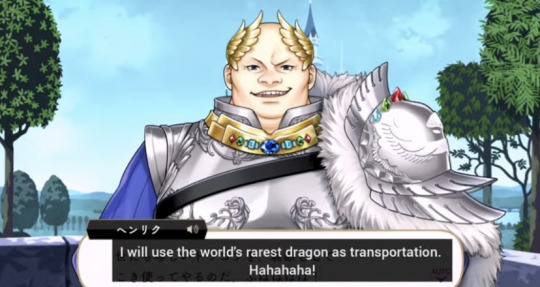
And at the time of the Fae-Human war, Fae were considered *monsters.* Monsters like Grim or Phantoms- the exactly sort of creatures that Styx had. Even the subject that killed the human Ortho was described as a “monster,” not a Phantom (there’s theories floating around that this monster was Grim 👀). Henrick also brought up his plans to essentially enslave Malleus before he even hatched- to use his dragon form as “his steed.”
So I wouldn’t be surprised that there was a time where Styx shared similar views, and thus kidnapped and conducted experiments on Fae as if they were as “expendable” as monsters 🤔 Even if Styx in the modern day has changed greatly, the damage that previous generations created cannot be undone.

I’d also like to say that Levan was similarly considered to be Meleanor’s “eyes and limbs,” much like how Diaval was Maleficent’s wings. Maleficent’s wings were trapped in a cage, still alive, but trapped. Perhaps the ideas of Diaval being captured by a human hunter and Maleficent’s wings being trapped in a cage were combined for TWST as clues to what happened to Levan? 👀
Tampered memories, blot…ANSJJSZ I have tried my hardest to not bring up Crowley, but I find his relationship with Styx to be fascinating 🫣 But I’ll save that and the details regarding blot for a future post, because I mostly just wanted to talk about the potential backstory for Levan in this one \(//∇//)\ What are your thoughts on what happened to Levan and even the other soldiers who disappeared? 🤔
#twisted wonderland#twst#twst theory#twst Styx#twst shroud family#twst levan#Twst revan#kallistopost#twst book 7 spoilers#twst analysis
240 notes
·
View notes